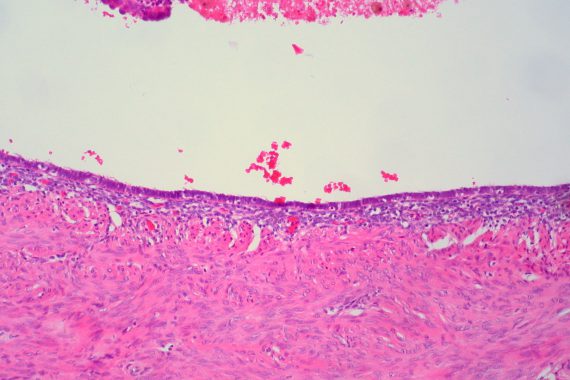GPs should refer patients for further examination to rule out endometriosis even if abdominal or pelvic examination, ultrasound or MRI are normal.
That is the message in NICE’s first ever guideline on the condition, which the advisory body said often plagues women for 7.5 years on average before a diagnosis is confirmed.
The guideline also emphasises that GPs should be aware of symptoms and create management plans tailored to the patient’s symptoms and preferences rather than the stage of their endometriosis, as staging classifications are typically not well-defined.
The guideline recommends that analgesics should be offered after taking in to account the patient’s needs and preferences, and that paracetamol and NSAIDs should considered for first-line pain management.
NICE also recommends that women should be referred to a specialist endometriosis centre if their endometriosis is deep and involves the bladder, bowel or ureter. According to the British Society of Gynaecological Endoscopy, there are currently 51 accredited specialist centres in the UK.
Professor Mark Baker, director of the centre for guidelines at NICE, said: ‘Delayed diagnosis is a significant problem for many women with endometriosis leading them to years of unnecessary distress and suffering.
‘The condition is difficult to diagnose as symptoms vary and are often unspecific. However, once it has been diagnosed, there are effective treatments available that can ease women’s symptoms.
‘This guideline will help healthcare professionals detect endometriosis early, to close the symptom-to-diagnosis gap and to ensure more timely treatment.’
Pulse reported in March that the All-Party Parliamentary Group on Women’s Health found that two-fifths of women with endometriosis had seen their GP at least 10 times before being referred to a specialist, prompting calls for better GP education on gynaecological issues.
However, this was challenged at the time by RCGP chair Professor Helen Stokes-Lampard, who said that women’s health is a ‘key’ component of the RCGP curriculum.
Dr Anne Connolly, GPSI in women’s health and RCGP clinical champion for women’s health, said: ‘The NICE endometriosis guideline is a welcome publication and should transform the lives of women suffering with this chronic complex condition.
‘This guideline should not only improve the awareness of the physical problems associated with this condition, enabling earlier diagnosis and management, but also raise the awareness of the psychological, social and sexual support that sufferers need.
‘The guideline should remind us that we can improve women’s experiences by listening to their concerns and providing improved information, allowing them more control of their decisions and management.’
NICE endometriosis guideline key messages
- Be aware that endometriosis can be a long-term condition, and can have a significant physical, sexual, psychological and social impact. Women may have complex needs and require long-term support.
- Take the woman’s symptoms, preferences and priorities into consideration when assessing treatment options.
- Not exclude a diagnosis of endometriosis even if the abdominal or pelvic examination, ultrasound or MRI are normal. If endometriosis is suspected or symptoms persist, patients should be referred for further assessment.
Source: NICE
Pulse October survey
Take our July 2025 survey to potentially win £1.000 worth of tokens

Visit Pulse Reference for details on 140 symptoms, including easily searchable symptoms and categories, offering you a free platform to check symptoms and receive potential diagnoses during consultations.













